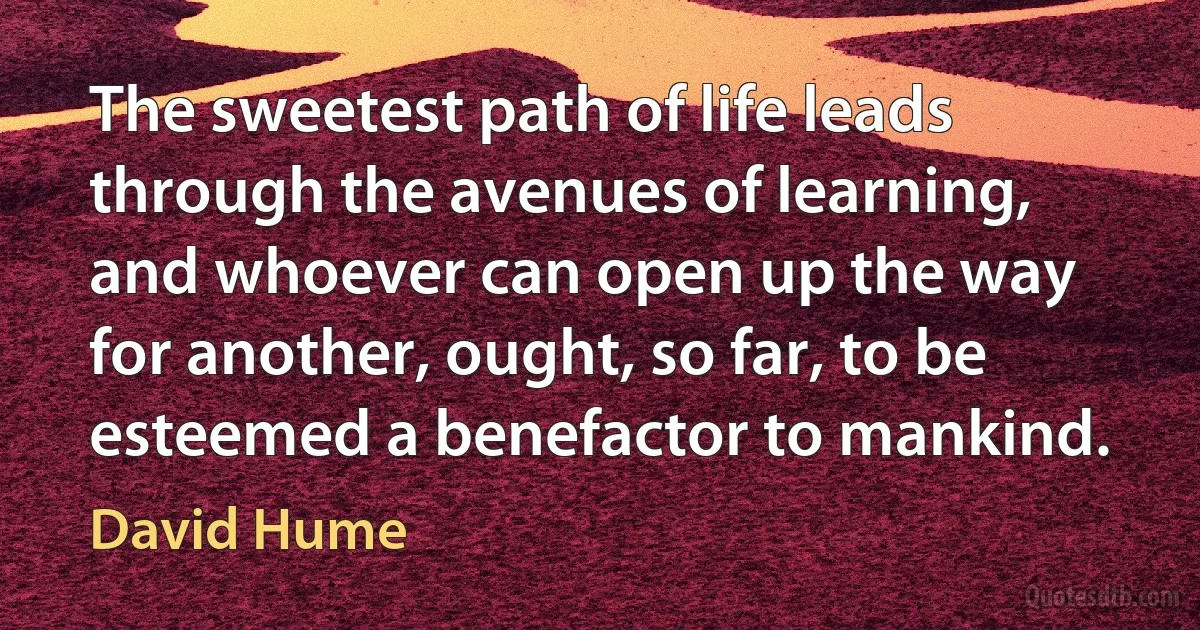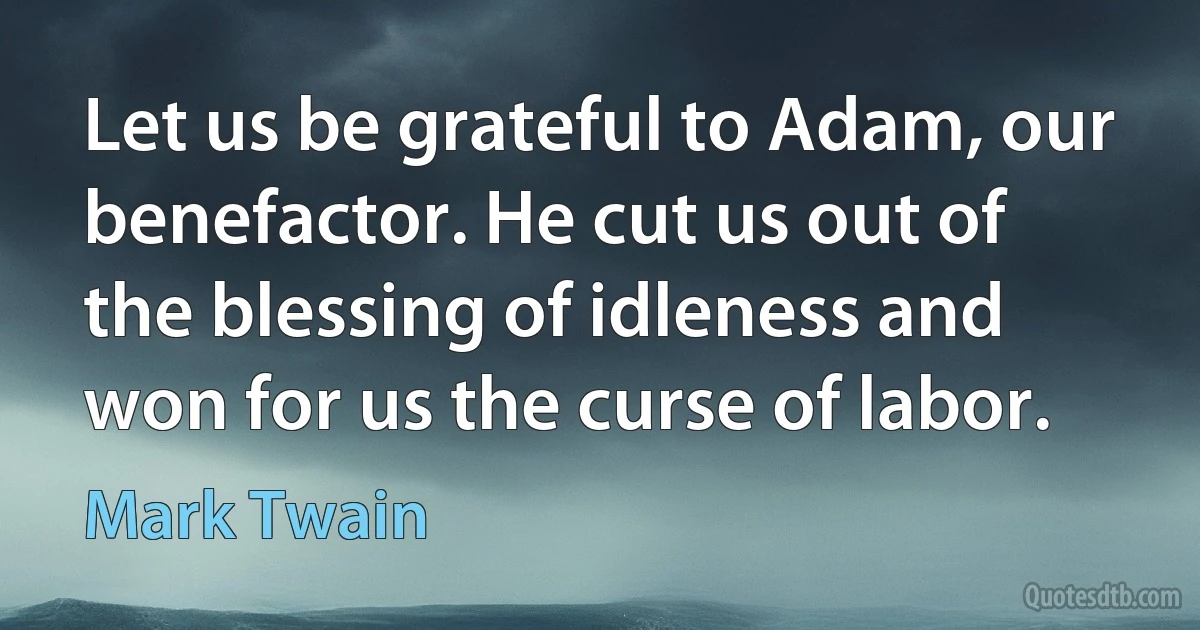Benefactor Quotes - page 2
Ingratitude is amongst them a capital crime, as we read it to have been in some other countries: for they reason thus; that whoever makes ill-returns to his benefactor, must needs be a common enemy to the rest of the mankind, from where he has received no obligations and therefore such man is not fit to live.

Jonathan Swift
It was high time for a generous benefactor to come to the relief of our necessities. Rich and poor, learned and ignorant are turning away from us. And when we try to lead back these misguided souls, neither threats nor promises, neither gentleness nor violence, nor anything else is now successful.

Anatole France
Capitalism is the greatest benefactor man has ever had. It is time for the thinking men and women of every nation to recognize that fact and to fully embrace the system of the mind and of individual rights. Men and women of all countries unite - in your support of capitalism. You have a world of joyous achievement to win.

Andrew Bernstein
O Nation, collect your compassion. Weep! For one of your shining lights is entombed in darkness. Weep! O ye officers and soldiers, whom he loved and led to military glory. Weep! O ye farmers and ye Poor, for your improver and benefactor has become a prey to worms. Come water his tomb with your tears.

James Morris III
A person is not a democrat thanks to his ignorance of literature and the arts, nor an elitist because he or she has cultivated them. The possession of knowledge makes for unjust power over others only if used for that very purpose: a physician or lawyer or clergyman can exploit or humiliate others, or he can be a humanitarian and a benefactor. In any case, it is absurd to conjure up behind anybody who exploits his educated status the existence of an "elite" scheming to oppress the rest of us.

Jacques Barzun
Samuel Hartlib, a celebrated writer on husbandry in the last century, a gentleman much beloved and esteemed by Milton, in his preface to the work, commonly called his Legacy, laments greatly that no public director of husbandry was established in England By Authority; and that we had not adopted the Flemish custom of letting farms upon improvement... Cromwell, in consequence of this admirable performance, allowed Hartlib a pension of 100l. a year ; and Hartlib afterwards, the better to fulfil the intentions of his benefactor, procured Dr. Beati's excellent annotations on the Legacy, with other valuable pieces from bis numerous correspondents.

Walter Harte
In this decade government at all levels has increased spending faster than the true rate of economic growth... The cure for inflation has been administered with a vengeance. Yet most people feel worse, not better, about their government benefactor. The elderly find their fixed income eroding in half; those about to retire fear their future pensions will never keep pace. Ten million California workers see their wages rise but not as fast as prices. Those on welfare obtain larger grants but find more expensive groceries.

Jerry Brown
It was high time for a generous benefactor to come to the relief of our necessities. Rich and poor, learned and ignorant are turning away from us. And when we try to lead back these misguided souls, neither threats nor promises, neither gentleness nor violence, nor anything else is now successful. The Penguin clergy pine in desolation; our country priests, reduced to following the humblest of trades, are shoeless, and compelled to live upon such scraps as they can pick up. In our ruined churches the rain of heaven falls upon the faithful, and during the holy offices they can hear the noise of stones falling from the arches. The tower of the cathedral is tottering and will soon fall. St. Orberosia is forgotten by the Penguins, her devotion abandoned, and her sanctuary deserted. On her shrine, bereft of its gold and precious stones, the spider silently weaves her web.

Anatole France
The more I have thought about Figures of Earth - and its sequel The Silver Stallion - the more remarkable they have come to seem. Looking back, one can now understand the abrupt fluctuations of Cabell's fame. ... Published when Cabell was forty-two, the chronicle of Manuel the Redeemer was not a book for the Young nor was it a book in the mood of the twenties. The story of the ambitious man of action who is cowardly, malignant and treacherous and who does not even enjoy very much what his crimes and double-dealing have won him, but who is rapidly, after his death, transformed into a great leader, a public benefactor and a saint, has the fatal disadvantage for a novel that the reader finds no inducement to identify himself with its central figure. Yet I am now not sure that this merciless chronicle in which all the values are negative except the naked human will, is not one of the best things of its kind in literature - on a plane, perhaps, with Flaubert and Swift.

Edmund Wilson
The work of Dr. Salk is in the highest tradition of selfless and dedicated medical research. He has provided a means for the control of a dread disease. By helping scientists in other countries with technical information; by offering to them the strains of seed virus and professional aid so that the production of vaccine can be started by them everywhere; by welcoming them to his laboratory that they may gain a fuller knowledge, Dr. Salk is a benefactor of mankind.
His achievement, a credit to our entire scientific community, does honor to all the people of the United States.

Dwight D. Eisenhower


